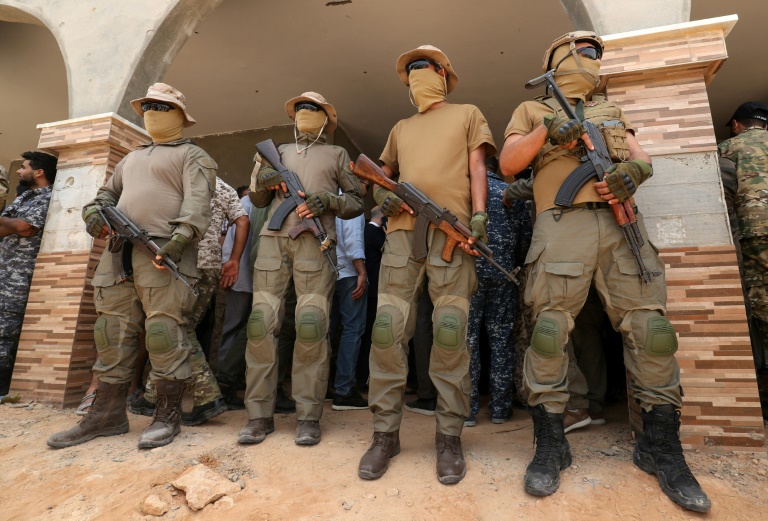Libya’s interim government voiced new hopes that foreign mercenaries could begin pulling out of the North African country in coming days, after world powers held talks in Berlin on Wednesday in a new push for lasting peace after a decade of strife.
The UN-sponsored conference gathering Prime Minister Abdul Hamid Dbeibah of Libya’s interim government as well as US Secretary of State Antony Blinken and the foreign ministers of France, Turkey and Egypt was the second edition of such peace efforts in the German capital.
At the meeting, participants including Russia’s deputy foreign minister Sergey Vershinin, welcomed Dbeibah’s pledge for Libya to hold elections on December 24.
They also signed up to pledges already made in the first round in January 2020 — when the presidents of Russia, Turkey and France agreed to end foreign meddling and withdraw troops.
But neither Moscow nor Ankara, both of which have significant forces in the country, have so far met their promise.
Libyan Foreign Minister Najla al-Mangoush hoped that this would change following Wednesday’s negotiations.
“We have a progress in terms of mercenaries, so you know hopefully within coming days, mercenaries from both sides (are) going to be withdrawing and I think this is going to be encouraging,” she said.
The United Nations has estimated that 20,000 foreign fighters and mercenaries are still on Libyan territory.
And that presence is seen as a threat to the UN-backed transition leading to the elections.
– No one’s interest –
The oil-rich country descended into chaos after dictator Moamer Kadhafi was toppled and killed in a 2011 NATO-backed uprising, resulting in multiple forces vying for power.
In recent years Libya has been split between two rival administrations backed by foreign forces and countless militias.
In October, after Turkey-backed forces of the Government of National Accord (GNA) based in Tripoli routed those of eastern military strongman Khalifa Haftar, the two camps agreed a ceasefire in Geneva.
The security situation in Libya has been slowly improving since then.
However, the UN recently warned that progress has stalled, notably on a key requisite for the polls — the pullout of all foreign soldiers.
Western leaders have repeatedly called on the foreign fighters to depart.
But Russian mercenaries supporting Haftar’s side in the east of the country are still in place.
Turkey meanwhile has troops in Tripoli, which it argues were sent under a bilateral agreement with the government, implying that they are not affected by a request for foreign troops to leave.
Any withdrawal is also a delicate balancing act, said Germany’s Foreign Minister Heiko Maas.
He noted that there is an understanding between the Turkish and Russian side that “when withdrawal begins, it will not be a short period of time when everyone will immediately pull back… but that it will be a step-by-step approach”.
The fear is that an uneven and sudden withdrawal could leave a military imbalance that could be exploited by the other side for a sudden offensive.
The United Nations Under-Secretary-General for Political Affairs Rosemary DiCarlo also noted that the whole process “will take some time”.
Nevertheless, Maas pledged that Germany and the UN will keep up efforts to ensure the departure of foreign militants.
“We will not rest until the last foreign force — the soldiers and mercenaries, no matter where they come from… have left the country.”











